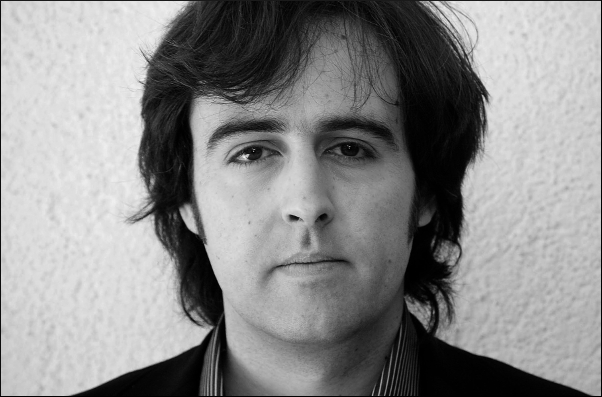
- Llums de colors
- Released in: 1997
This long song, spanning 5 minutes and 13 seconds, can seem much longer simply because the stream of words seemingly does not stop.

This long song, spanning 5 minutes and 13 seconds, can seem much longer simply because the stream of words seemingly does not stop.

Less than 10 years ago, “Llums de colors” shined a spotlight on Roger Mas and placed him on the road to becoming “the voice of Catalan music,” as some refer to him nowadays. All of this was thanks to this song, which won the Altaveu Award and was included in Mas’s first album, Les Flors del Somni. He later recorded seven more albums and performed in countries such as Brazil or Serbia, where they might have noticed and enjoyed his accent from the city of Lleida – which is similar to the Valencian accent –, which has the particularity of reducing the /e/ and /ɛ/ to [e] when unstressed. This long song, spanning 5 minutes and 13 seconds, can seem much longer simply because the stream of words seemingly does not stop. Mostly made up of nouns and adjectives, the lyrics are an excellent display of rhymes in which almost no word is used twice. The whole text put together seems, as a result, to seek an experience rather than the description of a story. Bearing in mind some clues hidden in the lyrics, this song can also be seen as a mental journey encouraged by some kind of drug.
“Llums de colors” is basically built on a fixed structure that repeats two types of strophes: a chorus – the only element that appears more than once –, and groups of 4 verses with one verb each. The use of verbs allows us to imagine a concrete action, although, in many cases, this is diluted by the rich descriptions of pictures. Formally, the rhymes appear to be almost perfect. The chorus respects the two main sounds of the song, the assonant rhymes “é” and “ó.” It reads: “Llums de colors, estrelles al cel; rams de flors, gerres de mel” (Color lights, stars in the sky; bouquets of flowers, jars of honey). Although the author almost repeats these same endings in every verse, he runs out of words and a few other vowel rhymes appear as well.

In any case, after the stunning work of picking and playing with words, it is difficult to know what Roger Mas talks about in this song. Just as the chorus, the song takes us to the same place that he appears to describe: there are lights, a night, and many natural elements, such as coal, fire, mud, and different species of animals. The first shadow of meaning appears on the third paragraph. We notice the “I” pronoun for the first time, and run to see what is happening in this fantasy we have been described: “Strict dementia, I don't think so, sudden incoherence.” Though not very clear, this moment of confusion is a prelude to some understanding, a clue that allows us to enter the void alongside the singer: “The mushroom flavor; sacred innocence.” Could this be a description of the effect of psychedelic mushrooms? Could this “sudden incoherence” be a good way of describing the effects of drugs?
Another clue could be represented by “sol, solet” (sunny, sun), a popular children’s phrase and song which symbolizes happiness and innocence. Another reference to the world of children is the “follet” that Mas sings about when talking about his inheritance. Although it can be translated as “elf,” this naughty character, so well-known in many popular traditions, might take his name from the French language, in which “follet” literally means “scatterbrain.” Therefore, if we stick to this theory about the song, it makes sense if we don’t actually understand anything else. The next paragraphs seem to be a clutter of words with partial meanings or none at all, as if words were just spread all over the song like a collage of pictures.

Nonetheless, the paragraph before the last recapitulates three relevant ideas. First, it uses the same ending for every word, which produces a schizoid but astonishing alliteration. Then, it plays with the double meanings of words, such as “moixons” and “gatons,” for instance, which, apart from “cats” mean “drunk people.” And finally, it describes the most concrete action in the whole song: “Soft kisses make tender; touch the depth.” At last, this conveys the feeling that something is actually going on. Also, it allows us to go back and see some other evidence that could point to a couple sharing a journey. After the only “I” in the song, we listen to something about a “him.” The lyrics read “Ell no ho sabia” (He didn’t know it) just before the description of a woman, inferred by the use of the ancient word “sina” (breast).
This is a very peculiar song from a very peculiar artist, as he unfurls quite a unique musical project. Mixing ancestral sounds with modern and traditional Catalan music, one can never get bored with what Mas has to offer. However, patience might be needed, as his songs will never lack a serious amount of words, details, and talent.